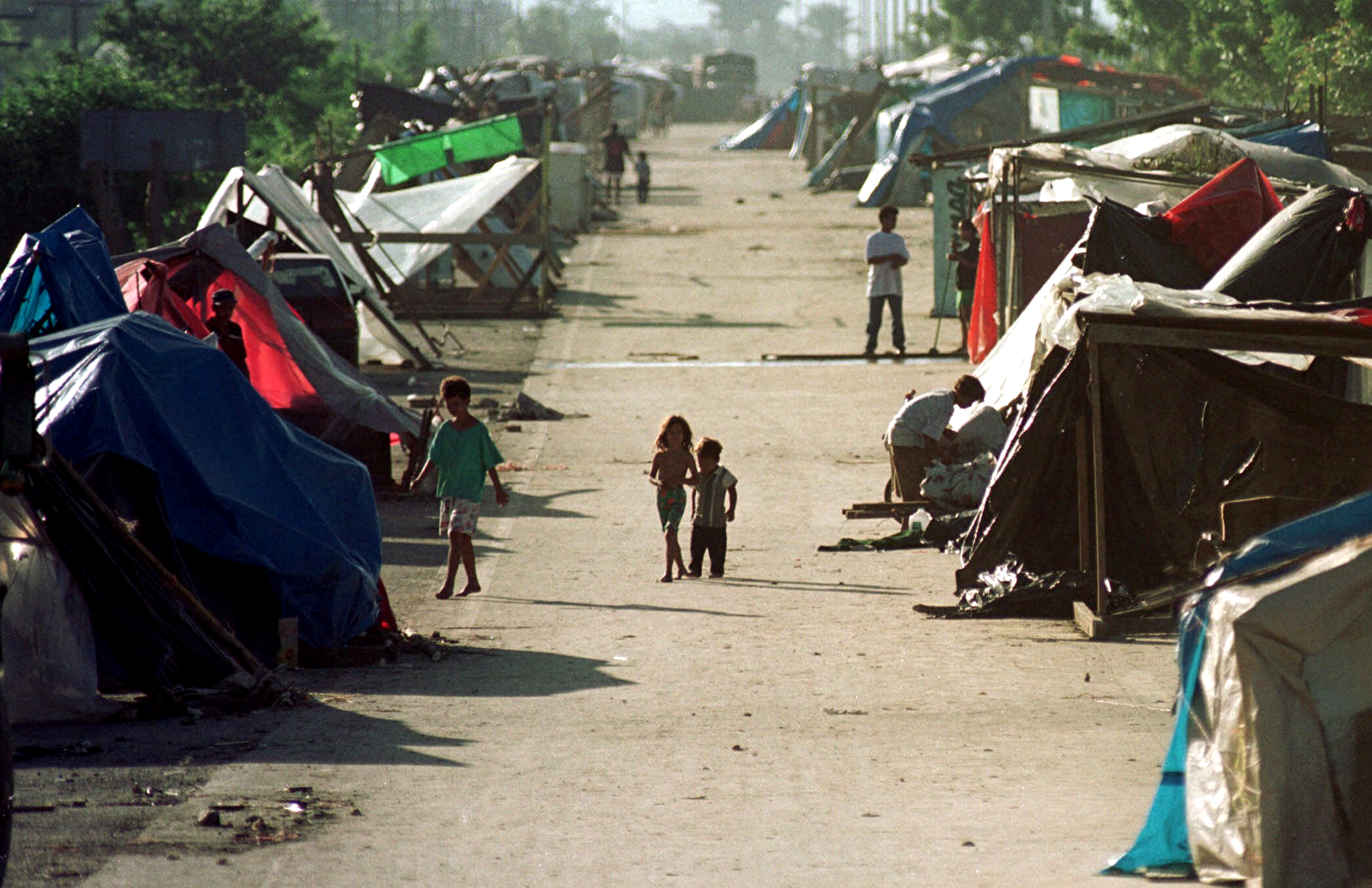America's appalling about-face on refugees
Why is America breaking its word to tens of thousands of refugees?


A free daily email with the biggest news stories of the day – and the best features from TheWeek.com
You are now subscribed
Your newsletter sign-up was successful
Our government excels at trying to solve problems and instead making them exceedingly worse. And the Trump administration has just provided an appalling example on the subject of immigration.
Twenty years ago, many Honduran refugees were "temporarily" admitted to the U.S. after Hurricane Mitch turned their country upside down. The program under which they sought refuge fell into a bureaucratic and legislative blindspot for two decades. Now, a sudden interest in fixing that problem threatens to make their lives — and our country — even worse.
The Immigration Act of 1990 allows the executive branch to assign temporary protected status (TPS) to various groups of refugees seeking shelter from natural disasters or political persecution. The law got put to use almost immediately for refugees originating from Kuwait and Lebanon, with both gaining TPS status in March 1991 due to political strife. Both of those cases actually were temporary, lasting one and two years, respectively, after which the Bush and Clinton administrations closed out the safe-haven application. Other groups more recently covered by TPS had relatively short periods of time in the U.S. safe-haven status; the Obama administration scheduled an end to that status after less than three years to refugees from Guinea, Liberia, and Sierra Leone, a Congressional Research Service analysis notes.
The Week
Escape your echo chamber. Get the facts behind the news, plus analysis from multiple perspectives.

Sign up for The Week's Free Newsletters
From our morning news briefing to a weekly Good News Newsletter, get the best of The Week delivered directly to your inbox.
From our morning news briefing to a weekly Good News Newsletter, get the best of The Week delivered directly to your inbox.
However, other grants of TPS began to look less and less temporary. Refugees from Bosnia-Herzegovina had nearly nine years before they had to either return or apply for residency in the U.S. Montserrat refugees got eight years, while those from Burundi got 12. They eventually had their temporary protected status revoked by the second Bush administration, but others have been here for much longer, and the Trump administration wants to put an end to it. El Salvador has the largest number of registrants in TPS at 195,000, but Honduras ranks second at 57,000. Both countries have had "temporary" status since December 1998.
Critics of the law raise a good point when scoffing at the use of "temporary" status to effectively provide permanent emigration. Decisions to provide safe haven and work permits on longer-term bases should require more prudence and more certainty. The law's initial proviso for an 18-month safe-haven status should be enough to determine whether conditions require a longer-term approach, and therefore to provide support for transitioning out of temporary status to a formal immigration process. Unfortunately, Congress has allowed succeeding administrations to shirk fixing this problem in the system responsibly.
But here's the key point: None of this offers any justification for the administration's appalling decision to threaten to kick out so many people after some 20 years of legal residency here.
These refugees complied with the law, settled into American communities, and raised families here. Many of them started their own businesses, bought property, and continue to provide for extended families in their native land. They relied on American law to contribute to our communities, and expected American law to give them a measure of certainty.
A free daily email with the biggest news stories of the day – and the best features from TheWeek.com
What happens when that certainty disappears and their legal status expires? Some of them may return home, while others rush to navigate the immigration system that until now didn't apply. Hugo Noe, a former Honduran ambassador to the U.S., predicts that many will transition from legal residents to illegal status, stuck between choosing the life they built here and the unknown of their native country decades later.
"Those Hondurans will fall into illegal status," Noe told ABC News. "They will not come back."
In other words, we will have transformed legal residents into illegal immigrants through a bureaucratic act.
We should absolutely fix the broken TPS system. But there must be a better transitional process than just giving 18 months' notice to its expiration. Given that we helped create this issue, shouldn't we provide for a fast-track system for those in TPS beyond a certain number of years? That seems especially true for those who have demonstrated a commitment to America in both assimilation and industry.
The U.S. has needed to start taking border and visa security more seriously for decades. President Trump won the 2016 election in large part by acknowledging that Americans want tougher enforcement of the law. When we have addressed those issues, we will still have a lot of tough decisions ahead when it comes to those who crossed our borders illegally or overstayed visas. Do we really need to add to them by turning law-abiding residents into illegal immigrants?
Edward Morrissey has been writing about politics since 2003 in his blog, Captain's Quarters, and now writes for HotAir.com. His columns have appeared in the Washington Post, the New York Post, The New York Sun, the Washington Times, and other newspapers. Morrissey has a daily Internet talk show on politics and culture at Hot Air. Since 2004, Morrissey has had a weekend talk radio show in the Minneapolis/St. Paul area and often fills in as a guest on Salem Radio Network's nationally-syndicated shows. He lives in the Twin Cities area of Minnesota with his wife, son and daughter-in-law, and his two granddaughters. Morrissey's new book, GOING RED, will be published by Crown Forum on April 5, 2016.
